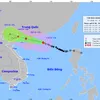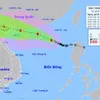India and ASEAN top recipients of FDI, says UNCTAD report

FDI inflows were higher in developing countries compared with those in developed economies. Globally, FDI declined 12% to $1.3 trillion in 2022 after a strong rebound in 2021 following the steep drop due to the Covid-19 pandemic, according to the report.
Foreign direct investment (FDI) in developing countries in Asia remained flat year-on-year at $662 billion during 2022, despite clocking about half of global inflows, the United Nations Conference on Trade and Development (UNCTAD) said Wednesday in its World Investment Report 2023.
The global FDI fell by 12% in 2022 to $1.3 trillion mainly due to overlapping global crises: the war in Ukraine, high food and energy prices, and soaring public debt.
The decline was felt mostly in developed economies where FDI fell by 37% to $378 billion.But flows to developing countries grew by 4% with a few large emerging countries attracting most of the investment while flows to the least developed countries declined.
Investments in renewables have nearly tripled since 2015.But most of the money has gone to developed countries. Developing countries need renewable energy investments of about $1.7 trillion each year but attracted only $544 billion in clean energy FDI in 2022.
India was the third largest recipient of foreign direct investment (FDI) in greenfield projects in the world in 2022. The FDI flows into India rose 10 percent from $44.7 billion in 2021 to $49.3 billion in 2022.
However, the total FDI inflows to India in 2022 was still lower than what was recorded in 2020, when India received $64 billion of foreign investments. India was also the second-largest recipient of international project finance in the world in 2022. International project finance is when international lenders provide debt or equity to infrastructure projects in various countries.
Moreover, Indian multinational companies substantially increased their overseas investments in 2022.Indian companies’ invested about $42 billion overseas, a three-fold increase in total investments.
In ASEAN, Singapore emerged as the largest recipient of FDI in the Southeast Asia region, recording a new high of $141 billion, representing an 8% increase while Malaysia also achieved record FDI inflows, with a growth of 39% to reach $17 billion.
Vietnam and Indonesia experienced FDI growth of 14% and 4%, reaching $18 billion and $22 billion, respectively.
With open policies and a favourable, stable, and increasingly improved business climate, Vietnam is one of the leading countries and has obtained many major achievements in foreign investment attraction, he told a workshop held by the Vietnam Investment Review in Hanoi on May 15.
Over the last 35 years, the foreign invested sector has always been considered an important part of the Vietnamese economy and given conditions by the Party and State to develop, cooperate, and compete healthily and fairly with other economic sectors, the deputy minister noted.
However, the UNCTAD report also pointed out that competition in foreign investment attraction among developing countries will become fierce, especially amid a forecast decline in foreign investment flows in 2023 and an increase in investment demand for post-pandemic recovery and development.
Tags:





